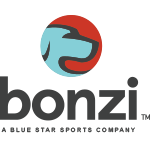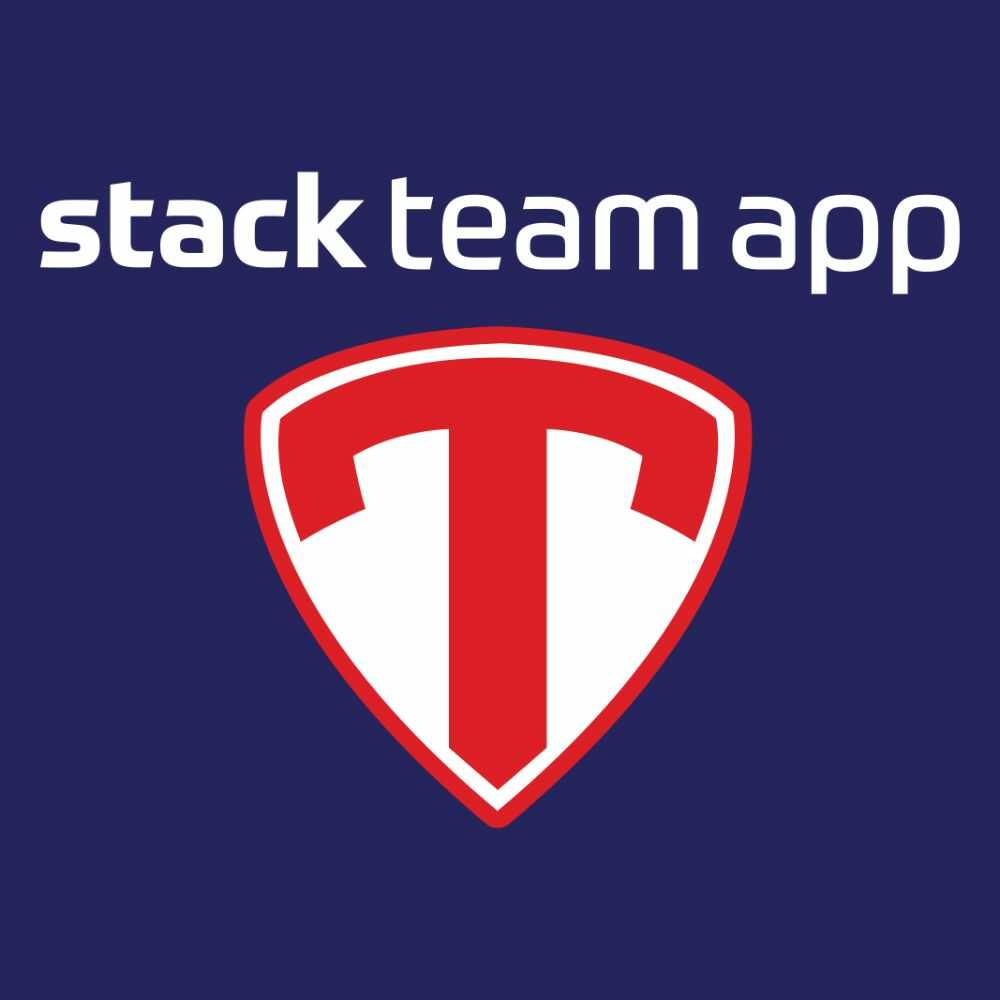What Is Sports League Software?
Sports league software is an effective tool for streamlining and automating the management of sports leagues, tournaments, and events. This complete program provides a variety of functions, including online registration, scheduling, team and player management, statistics tracking, and communication capabilities. It is specifically developed for sports organizations, ranging from small local leagues to huge national associations, to make administrative work easier and improve the entire experience for both organizers and participants.
One of the primary advantages of sports league software is its capacity to centralize all league-related activities, hence removing the need for paper-based procedures. Online registration allows teams and players to easily join up and submit relevant documentation, decreasing the strain for organizers. Scheduling tools make it easier to create and maintain game schedules, as well as track venue availability and make any necessary modifications.
The software also includes customisable team and individual profiles, allowing for simple recording of player and team data. Furthermore, sports league software has real-time communication features, allowing league managers to easily connect with clubs, coaches, and players via emails, newsletters, and in-app messaging. This promotes efficient and effective communication, ensuring that all relevant information is distributed to all stakeholders in a timely way.
Furthermore, the program provides a range of payment methods, making it easy for teams and players to pay registration fees and other league-related expenses. It also provides reports and analytics, which provide useful insights into league success and allow organizers to make informed decisions for future seasons. When considering investing in sports league software, you should think about the types of sports your league covers, the number of clubs and participants, and your special administrative requirements.
With the appropriate software, you can save time, decrease errors, and streamline your league operations, thereby improving the overall experience for everyone involved. When purchasing sports league software, keep these crucial considerations in mind to guarantee you get the best option for your organization.
What Are The Recent Trends In Sports League Software?
Sports leagues, whether amateur or professional, are always expanding and adapting to stay current in the fast-paced and ever-changing sports market. This includes the use of technology and software to expedite operations and improve the overall experience for both players and fans. As a result, there have been some recent trends in sports league software that purchasers should be aware of before making a purchase.
For starters, cloud-based sports league software is becoming increasingly popular. This means that the software is hosted on remote servers and accessed via the internet, rather than being installed on a local machine. This not only simplifies and improves access, but it also makes it easier for numerous people to interact and obtain real-time data.
Furthermore, cloud-based software frequently includes automatic upgrades and backups, reducing the need for regular maintenance while assuring data security. Another trend in sports league software is the inclusion of mobile apps. Sports leagues have acknowledged the importance of having a mobile presence, as the majority of people own smartphones and use them for a variety of activities.
These apps can serve as a one-stop shop for players, coaches, and fans seeking schedules, scores, statistics, and other pertinent information. They also include services like push alerts, team messaging, and online registration, which help the league communicate with its members. In terms of data analysis and performance tracking, artificial intelligence (AI) and machine learning (ML) are increasingly prevalent in sports league software.
That is why purchasers should look for software that has these features. AI and machine learning can help uncover patterns and trends in player performance, track injuries, and even anticipate game outcomes. This form of advanced data analysis assists not only coaches and club managers, but also fans by adding a competitive element and providing them with more insights into the games.
The trend of personalization and customisation has now spread to sports league software. This implies that the program can be customized to match the unique demands and requirements of each league. This includes the customisation of features, branding, and pricing plans. Buyers can save money by selecting and paying for exactly the features they need, rather than paying for superfluous functionalities.
Finally, there has been a clear shift toward user-friendly interfaces and intuitive design in sports league software. This not only makes it easier for users to navigate and operate the program, but it also eliminates the need for extensive training and assistance. Some software even includes tutorials and guidance within the application, making it easier for customers to get started and get the most out of their investment.
Benefits Of Using Sports League Software
Sports league software is an essential tool for administering and organizing sports leagues of all sizes. Its many features and functionalities make it an indispensable investment for any sports league aiming to streamline operations and improve the overall experience for players, coaches, and fans.
Let's explore, we'll look at the benefits of sports league software and why it's a must-have for any league.
1. Simplifies Registration & Communication: One of the most significant benefits of adopting sports league software is that it streamlines the registration process for players and teams. Online registration allows individuals to sign up, pay, and provide relevant information in minutes. This eliminates the need for paper forms and manual data entry, saving time and lowering the risk of error. The platform also provides for quick communication with members via email, SMS, and in-app notifications, keeping everyone up to know on schedules, updates, and significant announcements.
2. Arranges Schedules And Standings: Sports league software simplifies the scheduling process, allowing you to build and manage game schedules, practice times, and locations. It also provides automatic standings, removing the need for manual updates while maintaining accurate ranks. This not only saves time, but also ensures that the league rankings are transparent and fair.
3. Enables Online Payments: Sports league software allows your league to take online payments for registration fees, team dues, and other expenses. This reduces the inconvenience of collecting and processing cash or checks, lowering the risk of errors and delays. Furthermore, online payments provide convenience for participants, making it easier for them to execute transactions.
4. Offers Data Management And Reporting: A sports league creates a large amount of data, including player information, schedules, game results, and statistics. Sports league software allows effective data administration and tracking, allowing league administrators to stay organized and make sound judgments. It also has significant reporting tools, which allow you to examine data and acquire useful insights into your league's performance.
5. Improves Fan Engagement: Sports league software also benefits spectators by offering a tailored and interesting experience. Fans may stay connected to their favorite teams by using tools such as live score, real-time updates, and live streaming. This increases fan involvement and offers a more enjoyable experience for everyone.
Investing in sports league software transforms every league, large or little. Its advantages extend beyond simply streamlining administrative work, resulting in a more efficient and professional league. Sports league software is a must-have tool for taking your league to the next level, since it improves communication, fan engagement, and streamlines processes.
Important Factors To Consider While Purchasing Sports League Software?
When it comes to selecting sports league software, there are several important elements to consider to ensure that you choose the greatest choice for your company.
We will highlight the key points to consider while analyzing and comparing various software options.
1. Features And Functionality: The software's features and functionality should be considered initially. It should include all of the tools and features you'll need to administer your sports league, including scheduling, registration, communication, and payment processing. Look for software that can be customized to match your individual requirements and supports a variety of sports and league kinds.
2. User-Friendliness: The software you chose should be simple and intuitive for all league members to navigate and use. It should have a simple interface and clear instructions for any tasks, such as configuring games or generating timetables.
3. Integration And Compatibility: Another important thing to evaluate is whether the program is compatible with your existing systems and tools. It should work flawlessly with your website, social networking platforms, and any other tools you use to run your league. This will help to guarantee that operations run smoothly and efficiently, with no disruptions.
4. Customer Support: The software vendor should provide dependable and accessible customer support to assist you with any problems or concerns. Look for providers who offer several support channels, such as phone, email, and live chat, as well as a dedicated support crew throughout your league's operational hours.
5. Cost: Take into account the cost of the software as well as any additional expenses for installation, support, and upgrades. Choose a moderately priced one that meets your budget while also providing value for money in terms of features and functionality.
6. Mobile Compatibility: In today's fast-paced world, it is critical to have software that works with mobile devices. This allows your league members to access and manage their information and tasks while on the go, making it more convenient and efficient for everyone involved.
7. Security: The program should have strong security mechanisms in order to protect sensitive information including player data and financial transactions. Look for suppliers who provide SSL encryption, regular data backups, and other security features to safeguard the safety and privacy of your league's data.
8. Reputation And Reviews: Before making your final decision, conduct extensive research on the software provider's reputation and read reviews from other sports leagues that have used their software. This can assist you understand their client contentment, dependability, and general performance.
What Are The Key Features To Look For In Sports League Software?
When it comes to operating a sports league, having the correct software might mean the difference. From scheduling and team management to registration and financial recording, a competent sports league software can help you save time and money. But with so many alternatives available, how do you determine which one is most suited to your league?
To make an informed decision, here are the essential elements to look for in sports league software:
1. Scheduling Tools: One of the most difficult aspects of organizing a sports league is setting a schedule that is equitable and balanced for all teams. Look for software that includes complex scheduling features, such as the option to build season-long calendars or individual timetables for each team. This saves you hours of manual scheduling and ensures that all teams have equal playing time.
2. Online Registration: The days of collecting cheques from players and filling out paper registration forms are over. Look for sports league software that includes online registration features. This will simplify the registration process for players and parents while also saving you the time and effort of organizing and tracking paper forms and fees.
3. Team And Roster Management: Whether you're running a young or adult league, having software that lets you quickly manage teams and rosters is critical. Look for features that allow you to build and manage teams, add and remove members, and track player information such as contact and medical information.
4. Communication Tools: Effective communication is essential for a well-run sports league. Look for software with built-in communication features including team messaging, league-wide announcements, and email support. This will save you the trouble of sending separate emails or SMS to each team or player.
5. Financial Tracking: Managing finances is a vital component of establishing a sports league. Look for software that has financial tracking features like online payment processing, invoice production, and budget tracking. This will allow you to keep track of league money and streamline the whole management process.
6. Mobile Accessibility: In today's fast-paced world, being able to manage your league from anywhere is essential. Look for sports league software that includes a mobile app or is accessible via a mobile browser. This allows you to keep current and make changes to schedules, rosters, and other vital information even while you're not at your computer.
Why Do Businesses Need Sports League Software?
Sports leagues are an essential component of the sporting sector, allowing individuals and teams to compete, improve their talents, and promote a feeling of community. However, forming and sustaining a sports league may be a difficult endeavor that requires substantial time, effort, and finances. Here's where sports league software comes in.
Sports league software is a comprehensive application that streamlines and automates all areas of league management, including registration, scheduling, communication, and payment processing. It provides a one-stop solution for all administrative responsibilities associated with running a successful sports league, making it an indispensable tool for sports-related enterprises.
First and foremost, sports league software streamlines the registration procedure for players and teams. It allows users to join up online, saving league officials the time and effort of filling out paper forms and entering data manually. This saves time, reduces errors, and guarantees that all information is captured correctly. Furthermore, sports league software has extensive scheduling capabilities such as game and practice scheduling, umpire or referee assignments, and automatic notification of any changes.
This significantly decreases the likelihood of schedule problems and miscommunications. Another significant advantage of sports league software is its capacity to manage payment processing. It enables businesses to collect registration fees, membership dues, and other expenses online, making it easier for players and teams to pay. This also eliminates the need for firms to handle and track cash or checks, lowering the likelihood of error or fraud.
Furthermore, sports league software provides sophisticated communication facilities. This includes the ability to send out email and SMS notifications, make and share announcements and updates, and facilitate communication among coaches, clubs, and league administration. This not only keeps everyone informed, but it also promotes a sense of community and collaboration.
Finally, the data management and reporting features of sports league software are extremely helpful to enterprises. It allows organizations to easily access critical data such as player and team information, game results, and financial records. This information can then be utilized to provide detailed reports, insights, and analytics, helping organizations to make more educated decisions and enhance their league operations.
How Much Time Is Required To Implement Sports League Software?
The time required to develop sports league software varies based on a number of criteria. These characteristics include league size, software complexity, and the level of customization required. Implementing sports league software for small to medium-sized leagues with a simple structure might take anything from a few days to a couple of weeks.
This normally entails installing the software, entering relevant data such as teams, players, and schedules, and holding training sessions for league administrators. Larger leagues with more teams and players may take longer to implement, ranging from a few weeks to several months. This is because there is more data to enter and more things to consider, such as managing numerous divisions or teams with varying schedules.
However, if the sports league software requires considerable customization to meet the unique objectives of a league, the deployment process may take longer. This may include developing custom features, interfacing with other systems, and performing comprehensive testing. It is important to remember that the implementation timeline is also dependent on the availability and cooperation of the league staff.
Involving personnel and maintaining clear communication can assist speed the deployment process and ensure a smooth transition to the new program. In general, most sports league software vendors provide support and guidance throughout the deployment process to guarantee that it runs smoothly and on time. It is also recommended that you prepare and dedicate enough time for training and familiarization with the software before the league season begins.
What Is The Level Of Customization Available In Sports League Software?
When selecting sports league software, it is critical to understand the degree of customization that is accessible. Customization capabilities have a significant impact on the overall operation and performance of your league administration system.
Here are some crucial variables to consider:
1. Customizing Possibilities: A good sports league software should have a range of customizing choices, allowing you to customize the platform to meet the specific needs of your league. This can involve adding your league's logo, selecting color schemes, and tailoring the scoring system to your league's rules.
2. User Roles And Permissions: Changing user roles and permissions is critical for ensuring that only authorized users have access to important information and functionality. Look for software that lets you customize user roles and assign varying degrees of permissions to coaches, players, and other league members.
3. Schedule Customization: One of the most significant aspects of sports league software is the ability to establish and manage game schedules. The level of customization in this area can range from simple drag-and-drop options to more complicated features like scheduling by location, game time, or field availability.
4. Statistics Tracking: Many sports league software packages include statistics tracking for games and players. Look for a platform that allows you to control the types of stats tracked and how they are displayed.
5. Registration Forms: With customizable registration forms, you can collect all of the necessary information from players and coaches in a simplified and organized manner. Look for software that lets you design your own registration forms with custom fields.
6. Mobile App Customization: In today's digital age, having a mobile app for your league is critical. Look for sports league software that allows you to personalize the app with your league's branding, features, and content.
7. Integration With Other Software: If you already use other league administration software, such as accounting or communication tools, examine how customizable and integrated the sports league software is. This ensures a smooth transition and efficient use of all of your tools.
Which Industries Can Benefit The Most From Sports League Software?
Sports league software is a sophisticated tool that streamlines and automates many areas of sports league management. While the advantages for sports organizations are well known, it is critical to understand which industries can also profit from this technology.
Let's explore, we'll look at which sectors can benefit the most from employing sports league software.
1. Amateur And Youth Sports Organizations: Amateur and amateur youth sports organizations can considerably benefit from sports league software. These organizations frequently struggle to manage timetables, team registrations, and contact with players and parents. All of these responsibilities may be conveniently managed in one consolidated platform with sports league software, saving time and lowering the possibility of errors occurring.
2. Schools And Colleges: School and college sports programs might also profit from using sports league software. These universities frequently have many sports teams, and managing them can be challenging. Sports league software allows coaches, players, and parents to quickly manage and access schedules, player information, and game statistics.
3. Intramural Leagues: Intramural leagues, made up of recreational or non-professional sports teams, can also benefit from sports league software. This program can help you create and manage leagues, schedule games, and keep track of scores and standings. It can also help with player registration and communication between teams.
4. Corporate And Community Sports Leagues: Many businesses and towns organize their own sports leagues for employees or members. Sports league software can help manage these leagues by scheduling games, tracking attendance, and communicating with participants. It can also greatly simplify the process of forming and managing teams.
5. Youth Development And Mentoring Programs: Youth development and mentorship programs, such as those run by non-profit organizations, can use sports league software to administer sports teams and leagues. This can be a fun and engaging way for young people to learn new skills, establish collaboration, and form relationships while simultaneously tracking their progress and attendance.
Conclusion
Finally, obtaining the appropriate sports league software can significantly improve the efficiency and success of your sports league. With so many options on the market, it's critical to consider your personal demands and budget while making a purchase. First, decide which features are critical for your league, such as online registration, scheduling, and communication tools.
Then, look into several software providers and compare their products in terms of pricing, customer service, and usability. While simple software may suffice for smaller leagues, larger and more sophisticated leagues may necessitate more advanced functionality and customization possibilities. Additionally, evaluate the software's scalability as your league grows in the future.
Furthermore, make sure the software you choose is compatible with the devices and operating systems that your league members utilize. This will enable effective communication and accessibility for all parties concerned. Finally, examine reviews and testimonials from other leagues that have utilized the software to gain a better knowledge of its efficacy and trustworthiness.
Overall, investing in quality sports league software can help to expedite administrative work, increase communication, and ultimately improve the overall experience for both league managers and players. So take your time, conduct research, and select the program that best meets the objectives and goals of your sports league.






















